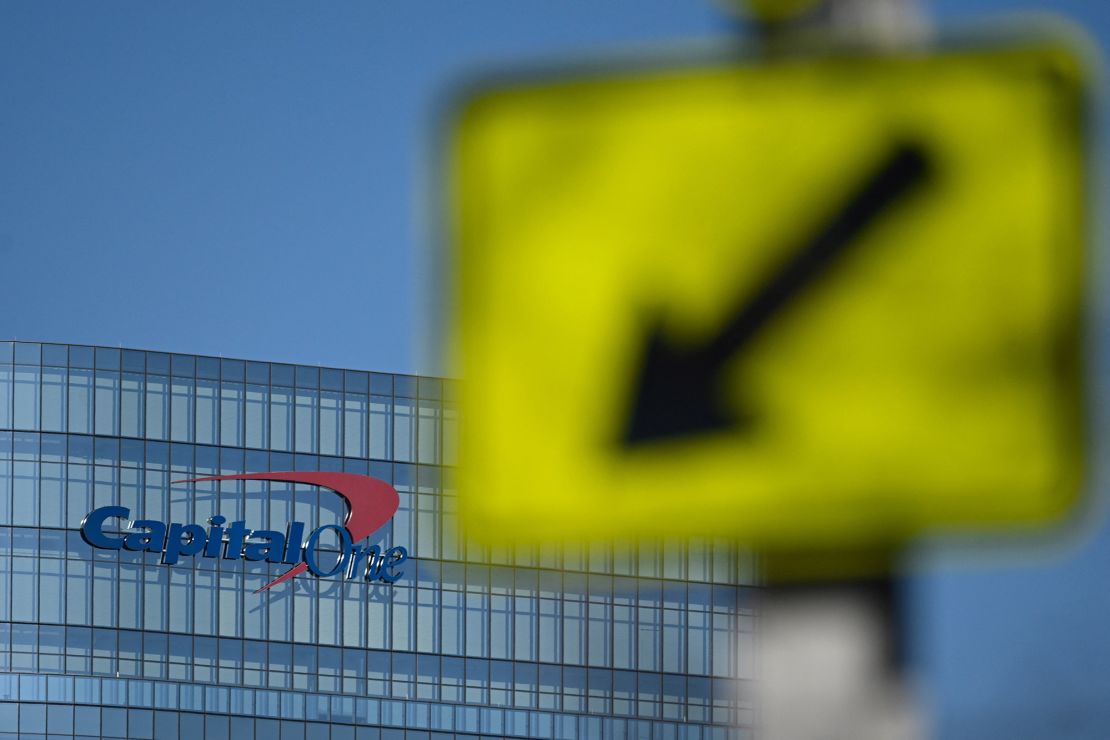CNN
—
The Trump administration is giving businesses a free pass from a wide variety of enforcement actions.
Boeing, Capital One, Southwest Airlines and Coinbase all faced legal action from the Biden administration, which accused the companies of cheating their customers, the government or otherwise acting improperly.
But multiple federal agencies under President Donald Trump have dropped those suits.
Consumer advocates say the dropping of those legal actions removes protections that consumers can’t replace on their own – giving businesses the green light to take advantage of customers without fear of penalty.
“They’re basically trying to take consumer financial protection down to zero and not defend people at all when they’ve been ripped off by banks and other financial services companies,” said Chuck Bell, financial policy advocate of Consumer Reports. “They’ve never seen a business practice they didn’t approve of.”
The White House, and most of the agencies, did not respond to a request for comment.
Boeing agreed last year to plead guilty to defrauding the Federal Aviation Administration for its role in two fatal 737 Max crashes that killed 346 people. But now, the attorneys for families of those crash victims say the Justice Department has notified them it’s prepared to drop that case.
Boeing declined to comment on reports its criminal case will be dropped, but the attorneys for the crash victims called the decision “morally repugnant.”
“Dismissing the case would dishonor the memories of 346 victims who Boeing killed through its callous lies,” said Paul Cassell, an attorney for many of the families, in a statement last Friday.
The Justice Department did not respond to a request for comment.
The Securities and Exchange Commission also dropped a case it had previously brought in 2023 against Coinbase, America’s largest cryptocurrency exchange. The SEC accused the company of unlawfully making billions of dollars by acting as an exchange, broker and clearing agency “without having registered any of those functions with the Commission as required by law.”
Coinbase, which had challenged the assertion and argued the SEC overreached, praised the decision to drop that case.

The Consumer Financial Protection Bureau sued Capital One during the final days of the Biden administration, accusing the company of “cheating millions of consumers” by not paying more than $2 billion in interest to holders of its high-interest savings accounts. Now that case, like many others brought by the CFPB, was dropped after the agency’s director was dismissed and its funding was slashed. No new director has been named.
The Department of Transportation sued Southwest Airlines in January under former President Joe Biden, seeking “maximum civil penalties” for operating two “chronically delayed flights” in 2022 that resulted in 180 flight disruptions. The Justice Department dropped that case quietly on Friday afternoon, with little comment. The Department of Transportation defended the decision in a statement.
“This was a lawsuit that should have never been brought forward,” the department said in a statement to CNN. “Southwest has remedied the underlying issues and USDOT will work with them fairly, not sue them for political gain.”
Both Capital One and Southwest said they appreciate the cases being dropped, arguing that the suits should never have been brought in the first place.
“We welcome the CFPB’s decision to dismiss this action, which we strongly disputed,” said Capital One.
“We appreciate the DOT’s decision to abandon its lawsuit against Southwest, which we believe is the correct result in this case,” said Southwest. “The two flights at issue occurred years ago when the industry faced unprecedented challenges from the Covid-19 pandemic and were delayed due to issues outside of Southwest’s control in numerous cases.”
The most recent relief for a business came Thursday from the Federal Trade Commission. It dropped a case brought in January by the Biden administration against PepsiCo that had accused the company of “unfair pricing advantages” with a large retailer. The retailer’s name was redacted in the initial statement, but a source familiar with the case told CNN at the time that it was Walmart.
FTC chair Andrew Ferguson in a statement called the Biden administration suit a “nakedly political effort to commit this administration to pursuing little more than a hunch that Pepsi had violated the law.”
PepsiCo thanked the FTC for its action.
“PepsiCo is pleased with the FTC’s further consideration and withdrawal of this matter,” said the company in a statement. “PepsiCo has always and will continue to provide all customers with fair, competitive, and non-discriminatory pricing, discounts and promotional value.”
Walmart did not immediate respond to a request for comment. But Walmart at the time told CNN it did not have a comment on the lawsuit.
Trump has made clear he believes American businesses need to be freed from what he sees as unfair and undue enforcement actions.
But it’s not just less enforcement – the Trump administration also wants to make it easier for companies to move ahead with mergers, particularly in financial services. The Office of the Comptroller of the Currency, a regulator that is part of the Treasury Department, announced new rules this month to make it easier to grant approvals of deals, including Capital One’s effort to buy Discover.
“Making it easier for well-managed and well-capitalized banks to merge promotes competition and facilitates economic growth and innovation,” said a statement from Acting Comptroller of the Currency Rodney Hood.
Consumer advocates are bringing legal challenges to combat the Trump administration’s actions. But they say there is little hope they can entirely stop the gutting of consumer protection cases over the next three and a half years of Trump’s term.
“I think much of what the Trump administration has done is go after the very foundation of consumer protection,” said John Breyault, vice president of public policy for the National Consumers League. “It’s not a surprise they would de-prioritize it. But they’re seeking to make these agencies non-functional. That should worry all consumers.”

